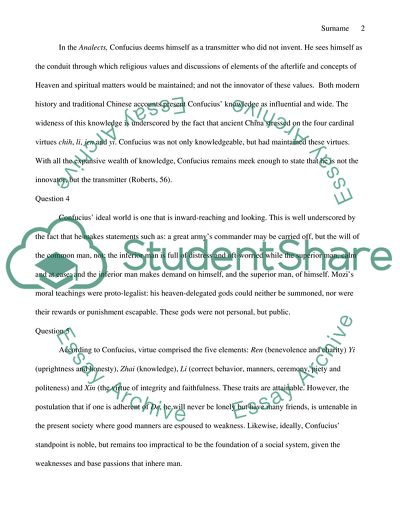Cite this document
(The Concept of Confucianism Essay Example | Topics and Well Written Essays - 1250 words, n.d.)
The Concept of Confucianism Essay Example | Topics and Well Written Essays - 1250 words. https://studentshare.org/religion-and-theology/1793662-not-sure
The Concept of Confucianism Essay Example | Topics and Well Written Essays - 1250 words. https://studentshare.org/religion-and-theology/1793662-not-sure
(The Concept of Confucianism Essay Example | Topics and Well Written Essays - 1250 Words)
The Concept of Confucianism Essay Example | Topics and Well Written Essays - 1250 Words. https://studentshare.org/religion-and-theology/1793662-not-sure.
The Concept of Confucianism Essay Example | Topics and Well Written Essays - 1250 Words. https://studentshare.org/religion-and-theology/1793662-not-sure.
“The Concept of Confucianism Essay Example | Topics and Well Written Essays - 1250 Words”. https://studentshare.org/religion-and-theology/1793662-not-sure.


